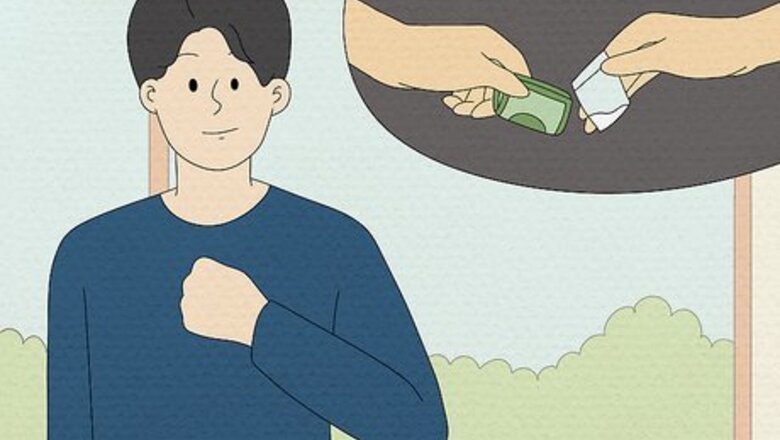
views
Reaching Out for Help
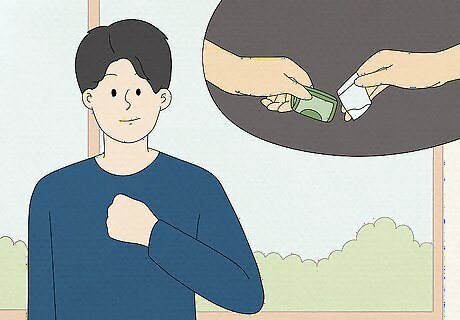
Know your rights. Most states have laws regarding substance abuse in parents and child protection. Depending on your state, your mother being hooked on drugs may be classified as child abuse or neglect. In some states, it is considered child abuse or neglect, if: Your mother prepares or makes drugs in your presence or in the same place where you are Your mother stores or uses chemicals or equipment for preparing drugs around you Your mother sells or gives drugs or alcohol to you or another child Your mother gets high and is unable to care for you Your mother has you around people who sell drugs
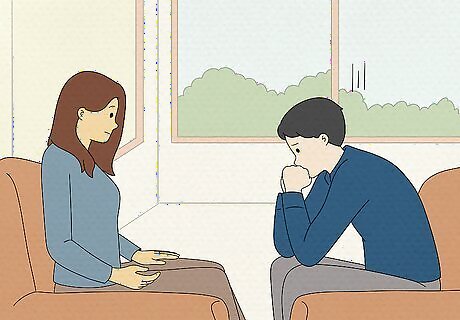
Tell a trusted adult. Unfortunately, there's not anything you can do to stop your mother from using drugs, and that is not your responsibility anyway. Your mother is an adult and is the only one who can make choices for herself. But, you can talk with an adult who may be able to intervene on your behalf. Think of someone you trust and feel comfortable talking to--it can be a coach, the school counselor, a religious leader, an aunt/uncle, or a grandparent. This person may be able to break through to your mother and explain how her behavior is affecting you. This person may also be able to offer you temporary care and support during this confusing time.
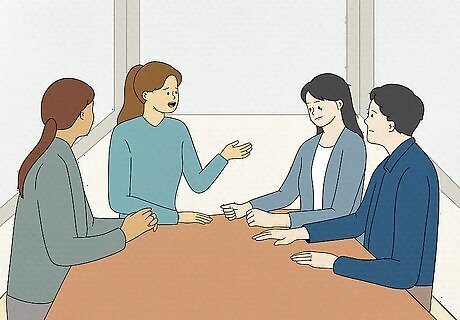
Participate in an intervention. An intervention is a face-to-face meeting facilitated by a professional mental health provider that allows family members and friends to share their feelings about the addiction. Your mother may not realize how negatively her drug use is affecting everyone. Staging an intervention may help your mom recognize that she needs help and that she has the support of those who love her. To stage an intervention, ask a trusted adult to help you contact a psychologist, addictions counselor, social worker, interventionist, or psychiatrist to coordinate the meeting. Any family members and close friends may be allowed to attend. The group will determine a possible course of action to help your mother get help. You all might look up treatment facilities and generally learn more about addiction in order to understand what your mother is going through.
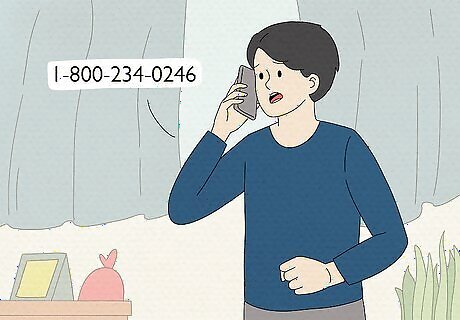
Make a call for help. If you find yourself in a situation where your mother needs immediate help or support, call the Alcohol and Drug Abuse Helpline and Treatment Hotline at 1-800-234-0246. Or, call 911 or your local emergency department. If your mother's drug use has placed you in danger or you are being abused, call the National Child Abuse Hotline at 1-800-25-ABUSE.
Taking Care of Yourself
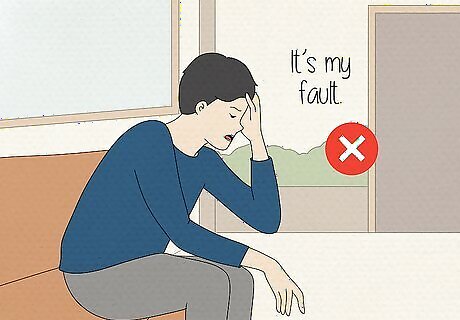
Know it's not your fault. You might want to blame yourself for your mother's drug abuse. You might think your behavior or attitude drove her to use drugs. This is not your fault. Remember that you are the child. You are your mother's responsibility, not the other way around. Addiction is a disease. Even your mother, on her own, cannot stop the vicious cycle of drug addiction. She needs professional help to get better. Blaming yourself isn't healthy or helpful. Instead, take the time to do self-care and nurture yourself. What you are going through can be devastating, but taking care of yourself can help you better care for her.
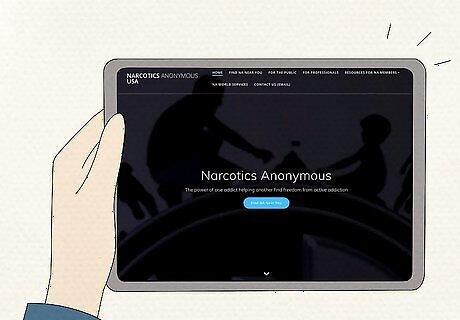
Know that you are not alone. More than 30 million Americans are fighting drug and alcohol addictions. This means that there are millions of teens or young adults like you who may have a mother with a drug problem. You are not alone. There are many resources to help you get through this. You can visit the Narcotics Anonymous website to look up meetings for Narateen groups, which are support groups for teens who have family members or friends with addictions.
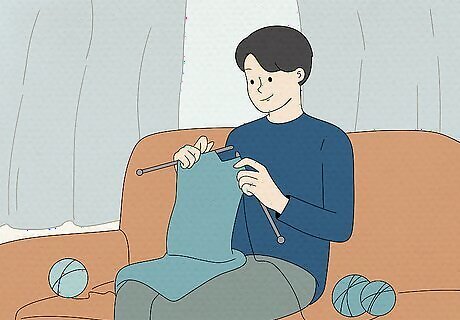
Don't think this has to be your fate, too. If your mother has a drug addiction, you could be at greater risk for drug abuse in the future. Your mother's drug problem can make life very unhappy and unstable at home. You may be tempted to cope by using alcohol or drugs. It doesn't have to be that way. You can stop the cycle. Find healthier ways of coping, such as: Acknowledge your feelings instead of trying to numb them Call a friend when you feel upset Exercise Get a hobby Volunteer in your local community Turn to your spiritual or religious faith Turn to new role models, such as teachers, coaches, or group leaders Join the D.A.R.E. (Drug and Alcohol Resistance Education) group at your school
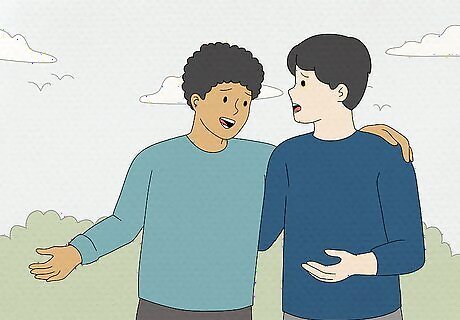
Talk to friends or a counselor. Dealing with your mother's drug use on your own may cause you to deal with your emotions in some unhealthy ways. Instead of trying to deal with your feelings on your own, share your thoughts and feelings with people you trust. Don't bottle up your feelings. Feeling shame or embarrassment about your mother's addiction is a common response that keeps many adolescents from speaking up. Carefully screen your friends to decide who will be less judgmental and most supportive of you. You may start the conversation by saying something like "So, the other day, I found drugs in my mom's room. I don't know what to do..." Prepare yourself for the consequences if you talk to an adult at your school. Teacher or school counselors will not be able to keep it a secret. They are generally required to report such information to the local authorities in order to protect you.
Recognizing the Signs of Addiction
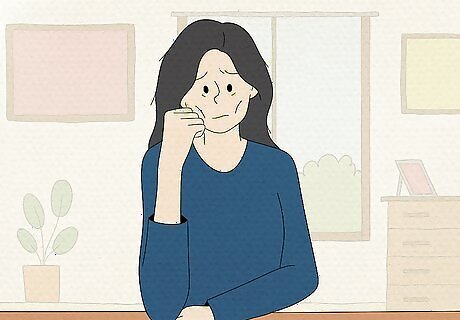
Be aware of the physical signs of drug abuse. People who are hooked on drugs may try to hide their behaviors or minimize the drugs' effects on them. You can identify whether your mother has a serious problem that demands professional attention by looking at these physical signs: Changes in eating patterns (a lot more or a lot less) Weight loss or gain Bloodshot eyes with pupils bigger or smaller than normal Decline in physical appearance (e.g. not combing hair, not bathing regularly, or changing clothes) Strange smells on breath, body or clothing Shaky hands Poor coordination or balance Slurred speech
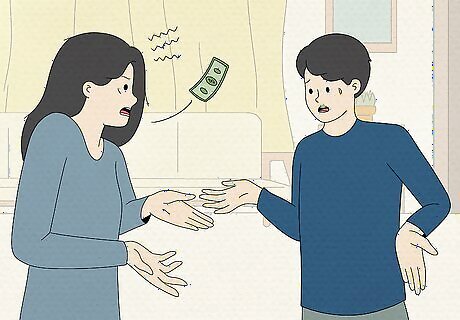
Take note of the behavioral signs. Your mom's behavior may also be drastically different than it was before. You may notice your mom: No longer going to school or work Asking for money from you or other family members Hanging with different friends and at different houses or locations Getting into trouble with the police, neighbors, or landlord Acting suspiciously (e.g. hiding things, keeping her door locked, or sneaking out)
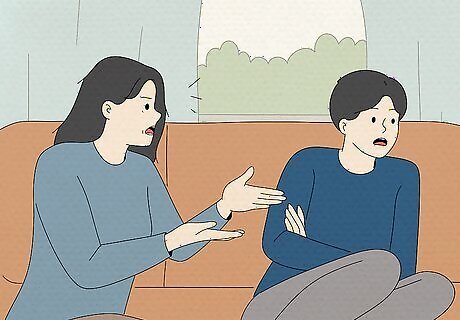
Pay attention to psychological changes. Another area in which you might see changes that point to drug abuse is in your mother's mental functioning. People who abuse drugs may show some of the following warning signs: Being in a bad mood, really cranky, irritable or angry Acting tired or sad Seeming like they have a different personality Being afraid or paranoid without reason Acting hyper or giddy
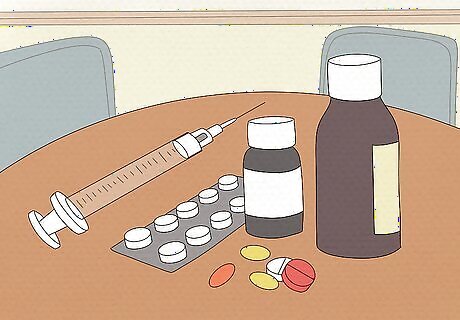
Don't touch her drugs. If you come across your mom's drug stash or any equipment related to her drug use, leave it alone. You will probably be tempted to throw it away or flush it down the toilet. Don't. A drug addict can become dangerous and completely unreasonable. She may get extremely angry or even be physically violent if you destroy her drugs. Plus, she will become desperate and go to any lengths to obtain new drugs. If you want, you can wait until another trusted adult is in the house and tell this person about what you saw. Let an adult take the responsibility for dealing with any drug paraphernalia. Doing so yourself could put you in danger.




















Comments
0 comment